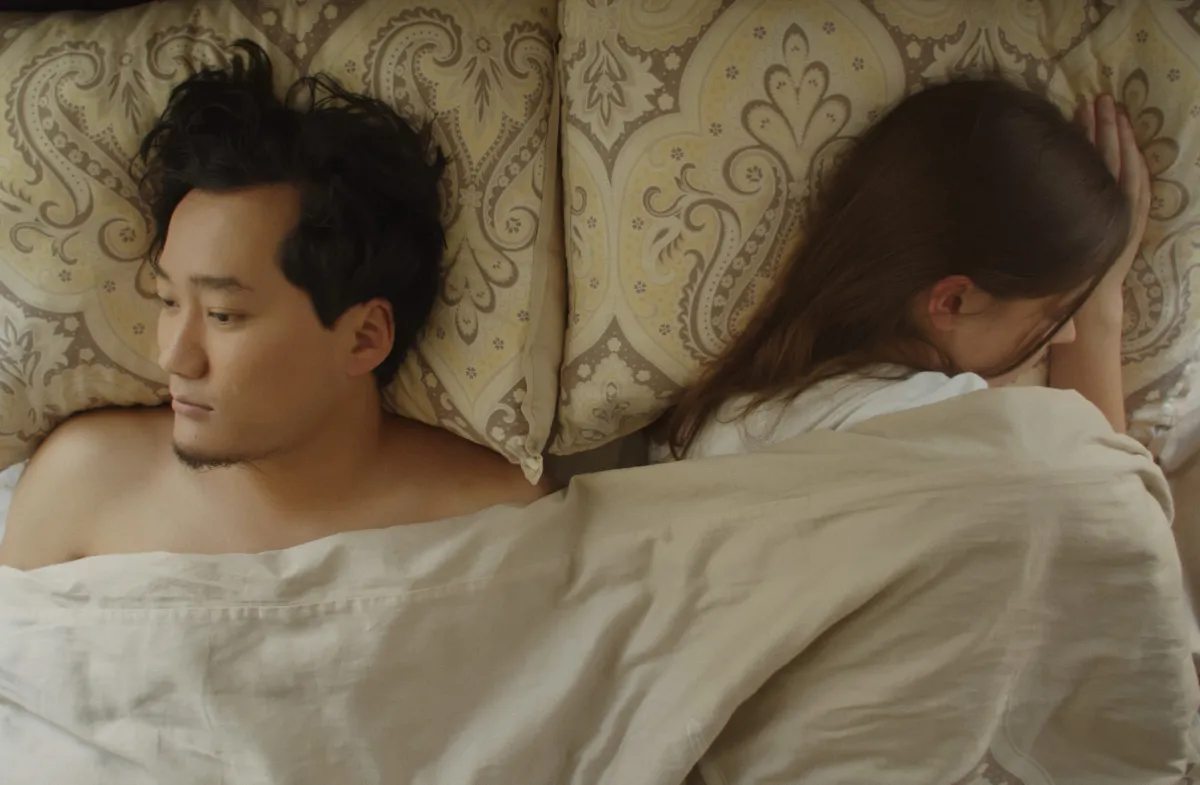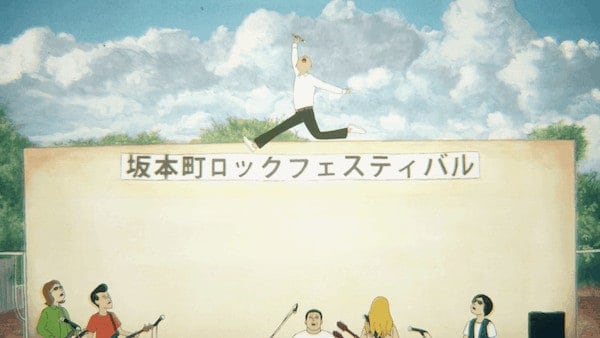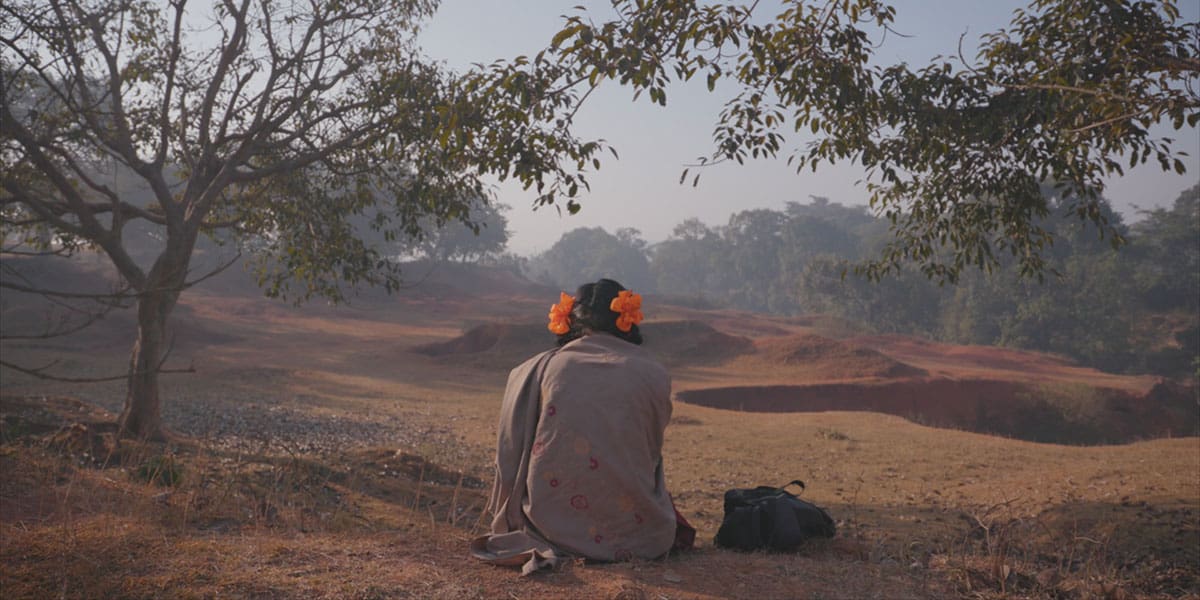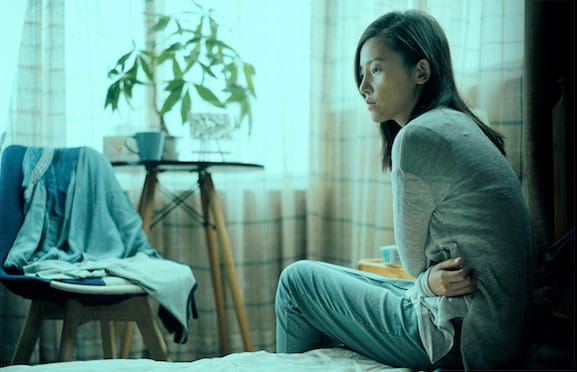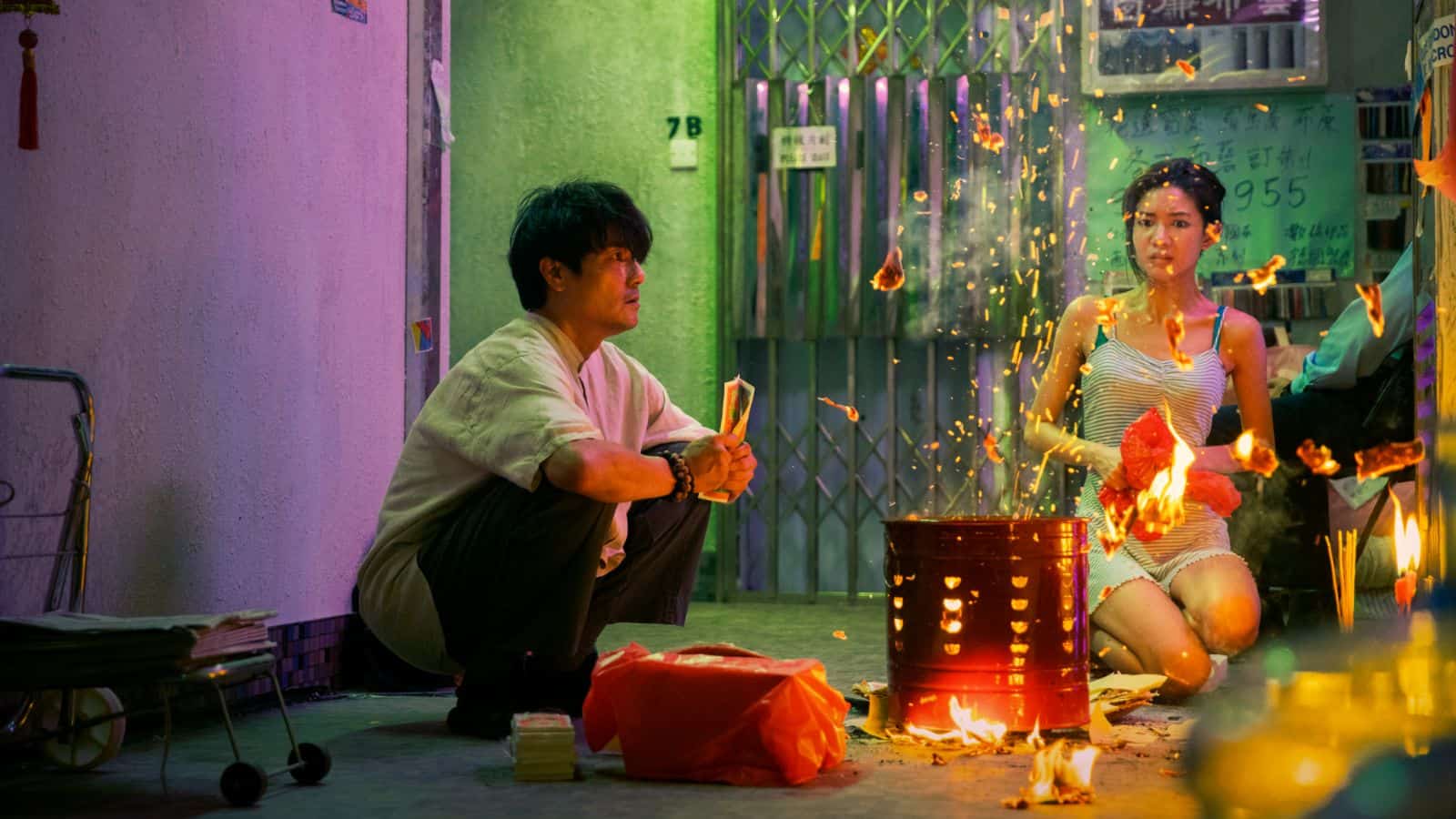What started as an alternative to the establishment, to the 9-to-5 work routine, the white picket fence and the routine of a monogamous marriage defined by traditional gender roles soon turned out to be a failed experiment, if we look at some communities which tried to make up their own society. Rather than constituting their own kind of community and trying their own experiment, many artists have approached these ideas through their work. Much like his colleagues, such as Seijun Suzuki or Nobuhiko Obayashi, director Masashi Yamamoto has created a niche for himself during his career, and also experimented with narration and form, with the goal of destroying a sense of unity in the feature film, as he once stated. In his 1988 effort “Robinson's Garden”, the director combines these tendencies in his work with a story about one of those social experiments, about its rewards and how it can “cure” a person from the influence of a society defined by ambition and greed.
Robinson's Garden is screening at Japan Cuts
The story follows Kumi (Kumiko Ohta), a slacker and occasional drug dealer, living on the outskirts of Tokyo in a small community of people, who, for several reasons, also do not fit into the “normal” Japanese society. After a night of heavy drinking, she mistakenly enters a derelict building, and on the next morning she decides this will be her new home. Since the gray, concrete walls are an eyesore to her and she needs furniture, she buys paint, plants and looks for used chairs and sofas to make her new home more comfortable. Little by little, the industrial site is transformed into a colorful oasis, with Kumi being at the center, and with only one more thing left to do: invite her friends to come over and possibly make them stay a while.
In a very short time, her oasis or her “garden”, as Kumi calls it, fills with people: hippies, punks, musicians and other social misfits. The variety of cultures and languages being spoken makes Kumi quite happy and comfortable, feeling that she has finally made her dream come true to create an alternative to the establishment. However, her faith in the garden is tested by several events, the arguments with her boyfriend, but she is unwilling to give up her dream.

Essentially, Yamamoto seems to pose the question whether an alternative to the materialistic, capitalist establishment is actually possible. While Kumi certainly seems willing to go through with her plan, there are various pitfalls and, perhaps most importantly, whether anyone has the stamina to make a community like that work. Even though one might get the idea Yamamoto's script is sharing the view of the protagonist, her ideas of abandoning the rules of the establishment, along with the hunt for status and money, he also highlights various doubts about Kumi's “garden”, albeit without becoming cynical about it.
One core aspect of “Robinson's Garden” is the way it portrays its characters and their world, without idealizing them. Although Kumi certainly has no qualms about her being called “Robinson Crusoe” by one of her friends, as she seems to like the idea of being compared to Daniel Defoe's famous protagonist, she is also shown as a person with flaws, who is lazy and at times quite egoistic, much like some of those joining her in the “garden”. Director Yamamoto and cinematographer Tom DiCillo, a frequent collaborator of Jim Jarmusch, follow her development and the progress within the garden, using an approach which blends documentary-like filmmaking with surrealism and even psychedelic elements. In the end, both side to this story and these characters are highlighted, the admirable and beautiful qualities as much as the tendency towards self-centeredness.
Despite the many qualities of “Robinson's Garden” there is also something quite frustrating about the approach which was chosen, especially considering the slow pace within the story. There seems to be some meaning behind the meandering narrative, the aimlessness of the plot which tests the patience of its viewer with its two hours of running time, but it does not help the fact this movie would have benefited from an intervention by the establishment, in this case, some form of editing or trimming.
In the end, “Robinson's Garden” is an interesting feature about an attempt to found a lifestyle outside the establishment. Masashi Yamamoto poses many provocative questions to his viewer about the obstacles and possible shortcomings of a social utopia, while also being aware of the opportunities it presents.



